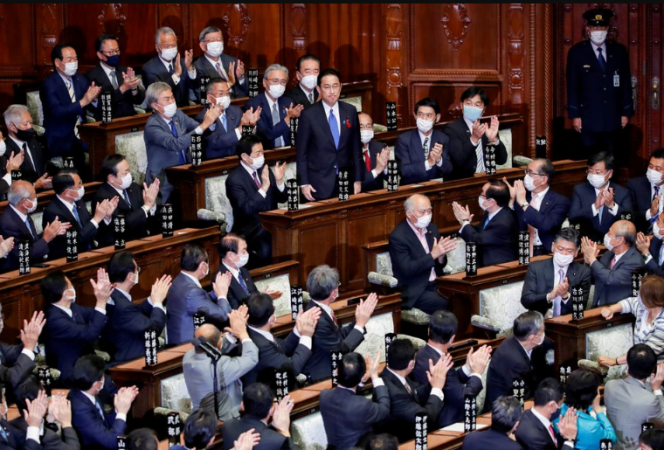
TOKYO: Japan's government on Thursday approved a bill tightening regulations on religious donations following an investigation into controversial fundraising practices by the Unification Church.
There are claims that the church pressures followers to donate large sums of money, as former Prime Minister Shinzo Abe was assassinated by a man angered by the sect's alleged practices.
Prime Minister Fumio Kishida proposed the bill as his government faces faltering approval ratings fueled by anger over ties between politicians and the Unification Church.
Also Read: '10 years in jail for conversion...', This state's great initiative
According to a Justice Ministry official, the bill was approved by the cabinet on Thursday evening and will now be debated in Parliament.
The proposed law would allow religious believers and their family members to request a return of donations and prevent religious organizations from soliciting funds through coercion, such as linking donations to spiritual salvation.
Religious leaders can be jailed for up to a year or fined if found guilty of pressuring followers to donate.
Also Read: US Expert: Reject China's Attempts to Coopt Buddhism
The man accused of murdering Abe reportedly resented the Unification Church for a large donation made by his mother, which bankrupted the family. The Bill will also allow dependent family members of believers to withdraw donations made by their relatives. The church denies pressuring its members to donate.
In October, Kishida ordered a government investigation into the Unification Church, also known as the Family Federation for World Peace and Unification.
The investigation could result in a dissolution order, which would result in the church losing its status as a tax-exempt religious organization, although it may still operate.
Also Read: Egyptians demand that the British Museum hand over the Rosetta Stone
An investigation launched soon after Abe's death found half of ruling party lawmakers had ties to the church, and the government's economic revival minister resigned in October over his ties to the sect. Sun Myung Moon founded the church in Korea in 1954, and its followers, known as Moonies, are known for holding mass weddings.